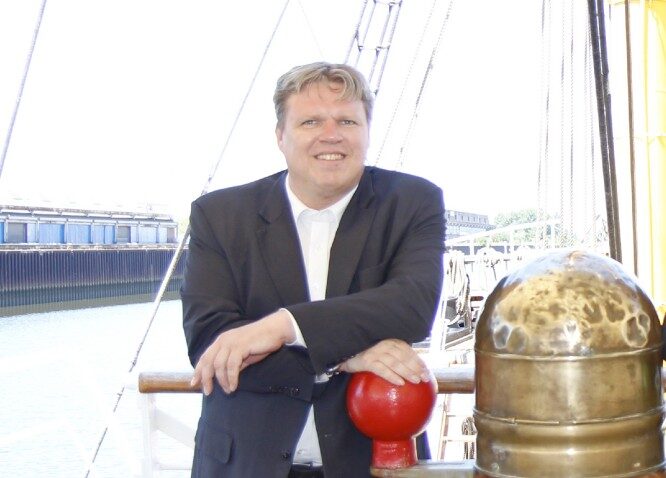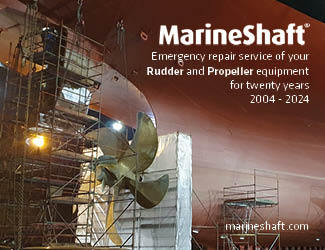
There are many levers to be tightened in the environmentally sound transformation of the maritime industry. But where to start? We have asked classification societies. This is the answer from Michael Suhr, Regional Director North Europe, Korean Register.[ds_preview]
The need to decarbonize globally is vital for our future: securing decarbonization technology is essential to provide sustainable growth in the maritime industry.
Shipping companies are still assessing the most suitable technological countermeasures and eco-friendly fuels to enable them to comply with continuously stringent GHG emission regulations. Uncertainties around which green fuels will be more widely adopted in the future and how the application standards will change make this challenge even harder.
To address uncertainties and support shipping companies as they implement countermeasures, the industry-university-institute network should be advanced to form a solid cooperative ecosystem through which a range of technical information can be gathered and various countermeasures discussed.
Using joint consultative bodies consisting of the maritime industry representatives, government, universities and institutes such as the Maritime Cluster Networking in Korea (MacNet) or the Maritime Cluster of Northern Germany (MCN), which has already been active, may be one way to do this.
Based on various methods discussed under the maritime clusters, the maritime industries and government should participate in international conferences where decarbonization regulations are decided, such as the International Maritime Organization‘s (IMO’s) Marine Environment Protection Committee (MEPC) and the International Maritime Research Council (IMRB), in order to resolve uncertainties.
Another priority is to develop core eco-friendly technology with collaborative projects from the maritime industry.
Shipping must transit to greener alternative fuels if it is to achieve its decarbonization goals, and methanol and ammonia are among the most promising green fuels in the future. Methanol is considered to possess high potential for commercialization as it offers fewer technical difficulties than LNG and relatively less toxicity than ammonia.
Although methanol has a limited supply chain compared to ammonia, it can be stored in a liquid state at room temperature, making it easier to store and transport, and requiring less volume than LNG, hydrogen and ammonia.
On the other hand, ammonia is expected to be advantageous in terms of operational costs due to its relatively low price. As both options continue to mature, along with the development of the related infrastructure, both fuels are predicted to be competitive low-carbon marine fuels in the future.
KR has been working to develop technology for methanol and ammonia as marine fuel, producing meaningful results including Approval in Principle (AIP) awards to a methanol dual-fuel 300,000 tdw crude oil carrier (VLCC) and two green ammonia-fueled ammonia carrier and bunkering ships. Additionally, an AIP for modern freighters using methanol fuel was successfully completed for a German ship owner.
Some of our recent work also includes other options that can be used to support decarbonization. For example, KR recently awarded AIP to a 40K CBM LCO2 carrier that was developed to safely transport CO2 captured in the supply chain. In addition, KR awarded Type Approval for a direct CO2 emissions measurement system on vessels called »Carbon Lens«.
Providing convenient and advanced services to better assist our customers in complying with strengthening GHG emission regulations is also very important to KR. In 2019 KR launched »KR Gears«, a GHG online data management system that has been significantly upgraded since.
The most recent update to KR-GEARs included development and verification services for »Ship Energy Efficiency Management Plan (SEEMP) Part III«. KR plans to further upgrade KR-GEARS within this year to include a CII response simulation function that enables scenario creation for each energy efficiency enhancing technology that can be applied to a vessel, such as fuel-efficient operations, main engine improvements and use of alternative fuel.
KR is ready to accompany and actively support the process towards green fuels. I personally strongly believe in green methanol and can only recommend every shipowner to definitely consider this fuel in newbuilding projects. We are happy to act as a consultant and technical expert organization on this topic and KR North Europe will be happy to answer any questions on alternative fuels.


















